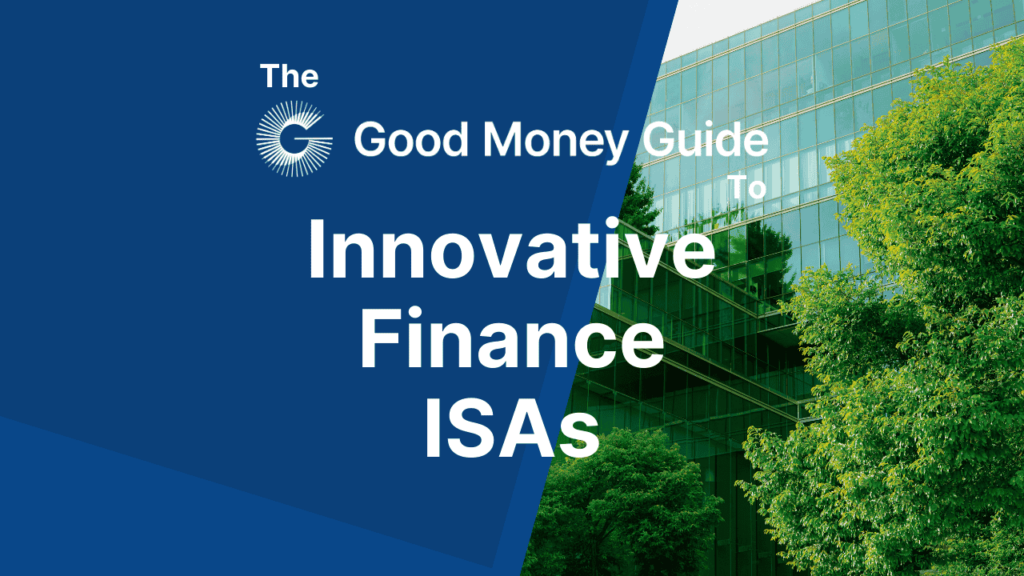When it comes to investing, most of us aren’t just focused on the returns. In fact, 81% of us want our money to make a positive difference in the world, according to the Financial Conduct Authority (FCA).
But how do you make sure your money is doing good, not harm? Leave it in cash, and you bank could be lending it to companies involved in fossil fuels, arms, or other sectors that might clash with your personal ethics. Invest in a traditional fund, and you may be surprised to learn what your money supports.
That’s where ethical investing comes in – but navigating this space isn’t always straightforward.
What is ESG investing?
Ethical and ESG (Environmental, Social and Governance) investing has become increasingly popular. Funds that say they are ESG investing should assess a company’s environmental impact, social responsibility and corporate governance practices – alongside their financial performance – when deciding whether to invest.
But the label alone isn’t always enough. In response to growing concerns, the FCA has introduced new rules that stop fund managers from greenwashing – claiming products are sustainable without evidence. Even so, what counts as ethical is very personal, and many ESG funds may fall short of your own standards.
One of the key problems is transparency. Funds are only required to publish their top 10 holdings. That leaves most of your investment hidden from view. Take Impax Environmental Markets, for example. Its top 10 holdings make up just 26% of the fund, meaning you don’t know where the remaining 74% of your money is going.
So, how can you ensure your money is helping the world, and still delivering a decent return? Step forward the Innovative Finance ISA (IF ISA).
What is an Innovative Finance ISA?
The IF ISA, launched in 2016, is the lesser-known sibling of the Cash ISA and Stocks & Shares ISA. It allows you to lend money through peer-to-peer platforms and alternative finance providers, with interest earned tax-free – just like other ISAs. You can invest up to £20,000 a year – provided you haven’t used any of your ISA allowance elsewhere.
Interest in IF ISAs is growing rapidly, money poured into them over the past 12 months with £821m deposited a 46% rise on the previous year, according to IFISA provider CapitalRise.
Traditionally, peer-to-peer investing was used as a way of beating the returns you could get on cash savings by lending your money to individuals for a higher return. The average target returns on an IF ISA last year was 8.83%, according to the Alternative Credit Investor. That’s well above the average cash ISA return of just 3.78% in 2024, according to MoneyFacts.
But it isn’t just the returns that are attracting investors. IF ISAs are also being used for ethical and impact-focused investments, offering a more direct connection between your money and its positive impact.
What can you invest in through an IF ISA?
IF ISAs let you invest in a wide range of projects. It could be anything from community-owned renewable energy to affordable housing and to loans for ethical businesses. Crucially, you get full visibility into exactly where your money is going.
For example, Triodos Bank offers an IF ISA where your money can be lent to social enterprises, ethical businesses and environmental projects. Recent investment opportunities have included a charity that supports people with learning disabilities, a fishing business that supports marine conservation and a sustainable bike company.
Ethex is a platform specialising in investments that deliver both a social and environmental return. Through its IF ISA, you can use your money to back projects including solar farms, community housing and credit unions.
The Solar for Schools project you can invest in via Ethex has mitigated 2,875 tonnes of CO2 and reached 44,959 students. In total Ethex has raised more than £120m for ethical causes, largely through its Innovative Finance ISAs.
Another IF ISA provider, Energise Africa, offers opportunities to invest in solar and clean energy projects across the continent.
As well as seeing your money have a positive impact on the world, IF ISAs also tend to offer better returns than you can get on cash. You can expect returns of between 5% and 10% depending on the investment you choose.
While the best cash ISAs pay around 5%, more than £50bm is sitting in cash ISAs earning 2% or less, according to analysis by Paragon Bank. So, IF ISAs offer more than double the interest in some cases.
What are the risks of an IF ISA?
Of course there is a catch. IF ISAs are a high-risk investment option. Your capital is at risk, and you could lose money if the company borrowing your money defaults on their loan. Also, IF ISAs are not covered by the Financial Services Compensation Scheme (FSCS). So, if they collapse, you won’t be guaranteed to get your money back.
Another thing to consider is that you need to be in it for the long-term with IF ISAs. Many of the investments have lengthy repayment periods. You are usually locking your money away for at least five years.
Only invest money you can afford to lose, and don’t need quick access to, in an IF ISA.
How to choose an IF ISA provider
If you want to dip your toe into IF ISAs, then make sure you do your research first. Look at the investment platforms out there and check their track record and what protection they offer investors.
For example, Triodos offers an IF ISA. The bank has been operating in the UK since 1995. The bank itself is covered by the Financial Services Compensation Scheme, so if it was to fail you could be able to get your money back. But the investments held within your IF ISA aren’t covered by the FSCS – they wouldn’t be with any provider – so if your investment loses money, you won’t get it back.
Also, make sure you understand how you can access your money, whether you’ll pay charges for early withdrawals and if it is possible to transfer your IF ISA.
With IF ISAs it is unlikely you could get your money back in a hurry as it has been lent out. You may find you have to wait until your investment matures before you can access your cash.
Many IF ISAs are completely fee-free – for example Triodos and Ethex – but some will charge a transfer out fee.
If you want to transfer an IF ISA you can usually only move any cash held within your account – not the investments as they are tied to the IF ISA provider. A cash transfer will have to be done via the formal ISA transfer process to ensure it maintains its tax-free status.
Should you consider an Innovative Finance ISA?
If you invest with a conscience as well as an eye on your returns and Innovative Finance ISA could help you achieve your goals. They don’t suit everyone and remain very much a niche ISA product. But for investors who want full transparency and a more direct impact, IF ISAs offer an intriguing alternative to mainstream products.
As always, do your research, understand what you’re investing in, and spread your money around to reduce your risk. After all, wanting to make a positive impact with your money doesn’t mean you should forget the golden rules of investing.

Ruth Jackson-Kirby has been writing about personal finance for 15 years. She writes for The Sunday Times, Good Housekeeping, MoneyWeek and Moneywise.




